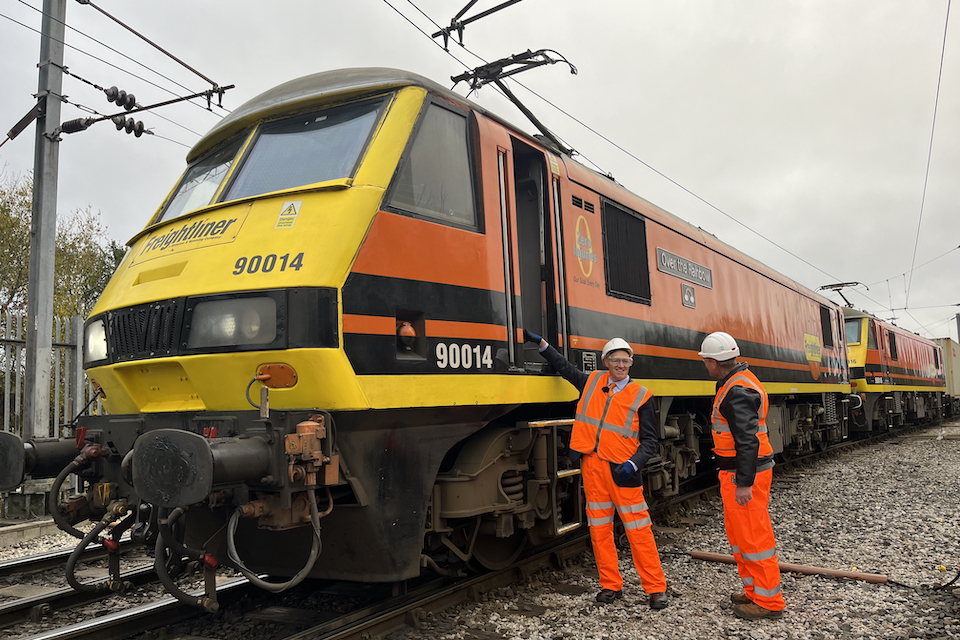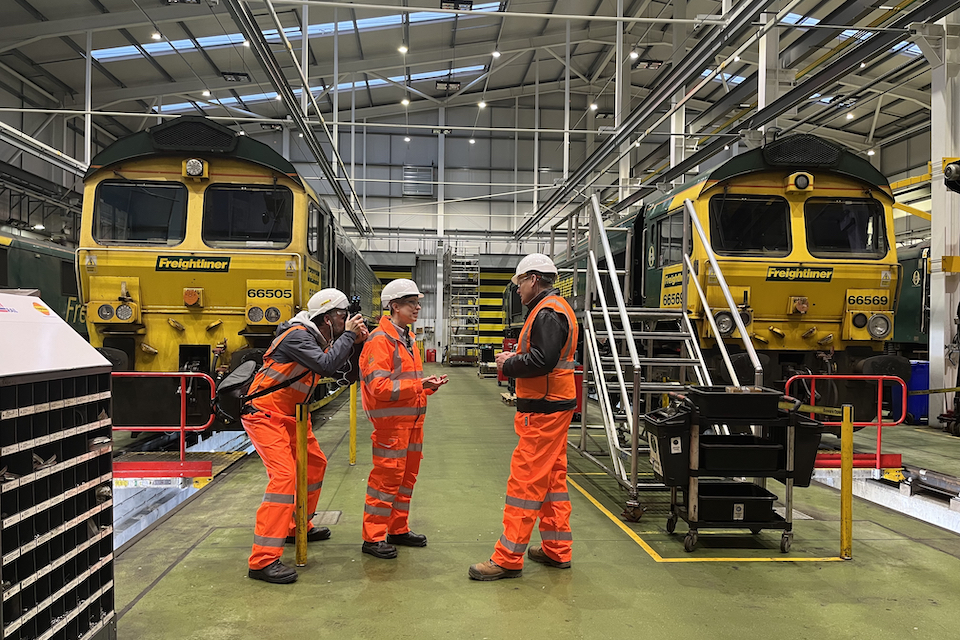UK Freightliner urges government to triple rail freight volumes by 2050 21/12/23
< Back to list
Freightliner, the UK part of American freight and logistics corporation Genesee & Wyoming, says the government in London should set a long-term target to triple rail freight volumes by 2050. The company emphasises that such a target would signify the government’s commitment to sustainability and instil confidence in the private sector. That, says Freightliner, would encourage substantial investments in long-term assets that promote economic growth.
Tim Shoveller, the recently appointed chief executive of G&W UK/Europe, said the matter of modal shift was now urgent for economic reasons. Shoveller’s brief, which includes Freightliner rail freight operations and the logistics carrier Pentalver, conveyed the urgency of this initiative during a recent Climate Show special broadcast Europe-wide on Sky TV. Rail freight is a critical part of the solution and must be able to compete with road haulage, says Shoveller. He says, however, that the economics must work for customers, which means government policy must play its part.
Government support required in three key areas
There is an increasing desire for businesses to become more sustainable and meet their ambitious sustainability targets, says Tim Shoveller of Freightliner. Currently, only about nine per cent of freight is moved by rail in Great Britain, he told a recent special edition of the Climate Show on Sky TV. He urged the UK government to put effort into achieving an ambition of tripling rail freight volumes, which is significant. The shift would result in over 20 million Heavy Goods Vehicles (HGVs) journeys being removed from British motorways annually, reducing carbon emissions by 2.5 million tonnes of carbon dioxide.
 Tim Shoveller (left) and Tom Heap about to climb aboard a class 90 locomotive. Image: © Freightliner.
Tim Shoveller (left) and Tom Heap about to climb aboard a class 90 locomotive. Image: © Freightliner.
Freightliner is active in the bulk and intermodal transport markets. Shoveller identifies these as vital to meeting the government-mandated net zero greenhouse gas emission target by 2050. Freightliner is urging the government to support the rail freight industry in three key areas. The carrier wants to see a significant reduction in track access charges that freight operators pay to run trains on the network, perhaps by as much as fifty per cent. That should go hand in hand with doubling the government’s modal shift grant so businesses can access and encourage the use of rail. Thirdly, they say that continuous investment in the rail network is essential to ensure sufficient capacity on busy rail corridors, enabling more freight trains to be timetabled.
Sustainability targets within Freightliner
The narrow margins within which the rail freight sector operates have been frequently emphasised. Freightliner was castigated when they were forced to temporarily ground their electric locomotive fleet in the face of steeply rising energy costs – something for which UK government policy has been criticised. “We’re not just calling on the government for support”, said Louise Ward, Safety and Sustainability Director at G&W UK/Europe. “We are also setting our own sustainability targets within Freightliner for the benefit of our customers and our organisation.”
 Tom Heap (on the right) from Sky News interviews Freightliner staff inside the Crewe maintenance depot. Image: © Freightliner.
Tom Heap (on the right) from Sky News interviews Freightliner staff inside the Crewe maintenance depot. Image: © Freightliner.
Now that the fleet is back in service, that commitment includes expanding the use of electric freight trains. Freightliner is also investing in alternative fuels like hydrotreated vegetable oil (HVO) and developing new technologies for future locomotives. Re-established as the largest freight operator of electric trains in the UK, Freightliner now aims to increase the number of electric services but acknowledges that affordability of electricity costs and electrification of certain gaps in the rail network are essential for realising this vision. Getting the message through to Westminster is the most critical gap to fill.





